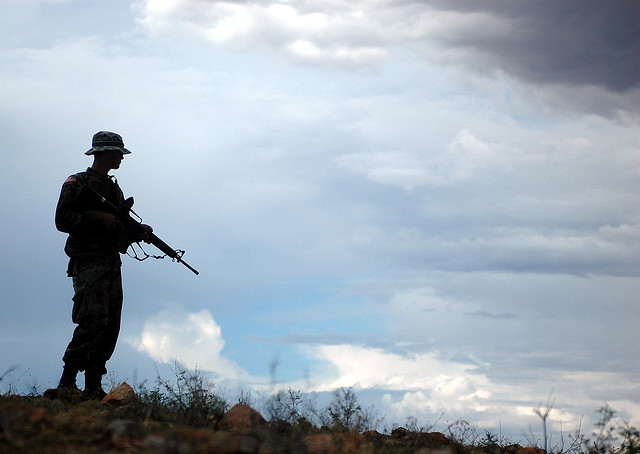 A humanitarian crisis requires a humanitarian response. In the case of the unaccompanied children from Central America who are arriving at the U.S.-Mexico border, this would include decent food, shelter, and medical attention while in U.S. custody. Even more crucial, it would include careful screening of each child’s case to determine if he or she is eligible for asylum or some other form of relief from deportation. For children in particular, careful screening takes time given the necessity of creating a child-friendly adjudication environment, the nature of children’s reactions to trauma, and the inability of children to quickly articulate or explain what has happened to them. Nevertheless, a number of lawmakers have put forth legislative proposals that, among other things, would truncate the process by which refugee children from Central America are evaluated to determine their eligibility for asylum or other relief. Rather than seeing this crisis for what it is—a human rights tragedy involving desperate children fleeing conditions of extreme violence—these lawmakers are acting as if it were merely a matter of insufficient immigration enforcement. More precisely, the key problem from this perspective is that current law does not allow child refugees to be deported fast enough.
A humanitarian crisis requires a humanitarian response. In the case of the unaccompanied children from Central America who are arriving at the U.S.-Mexico border, this would include decent food, shelter, and medical attention while in U.S. custody. Even more crucial, it would include careful screening of each child’s case to determine if he or she is eligible for asylum or some other form of relief from deportation. For children in particular, careful screening takes time given the necessity of creating a child-friendly adjudication environment, the nature of children’s reactions to trauma, and the inability of children to quickly articulate or explain what has happened to them. Nevertheless, a number of lawmakers have put forth legislative proposals that, among other things, would truncate the process by which refugee children from Central America are evaluated to determine their eligibility for asylum or other relief. Rather than seeing this crisis for what it is—a human rights tragedy involving desperate children fleeing conditions of extreme violence—these lawmakers are acting as if it were merely a matter of insufficient immigration enforcement. More precisely, the key problem from this perspective is that current law does not allow child refugees to be deported fast enough.
One of the most widely discussed pieces of legislation in this regard has been introduced by Rep. Henry Cuellar (D) and Sen. John Cornyn (R). The bill, which is misleadingly named the Helping Unaccompanied Minors and Alleviating National Emergency (HUMANE) Act, would accelerate the process by which the cases of unaccompanied children are evaluated by an immigration judge and the children either allowed to stay in the United States or deported. But rushing through the often complex and traumatic cases of refugee children is a recipe for disaster in that valid claims for relief are sure to be incorrectly denied and children sent back to highly dangerous situations. Moreover, the bill would expand grant additional resources and authority to the Border Patrol, National Guard, and local law enforcement to remove unauthorized border crossers in general.
Other bills are also in the works that attempt to take an enforcement-only route out of the Central American refugee dilemma. Sens. John McCain and Jeff Flake, Republicans from Arizona, plan to introduce a bill that would amend the Trafficking Victims Protection Reauthorization Act (TVPRA) of 2008 so that unaccompanied minors from Central American and any other “non-contiguous” countries would be treated just like children from Mexico or Canada, meaning that they would face faster deportation. In McCain’s opinion, “this crisis will continue until the parents who paid thousands of dollars to smuggle their children north to the United States see plane-loads of them landing back at home—their money wasted.” In the House of Representatives, Matt Salmon (R-AZ) has introduced a comparable bill to deal with the crisis. As he explained to the Arizona Republic, “I think the first step to fix it is to give our [Customs and Border Protection] guys the authority to immediately repatriate them back to their countries.”
One of the stranger proposals has come from Sen. Ted Cruz (R-TX), who wants to crack down on DREAMers so as to deter Central American children. Cruz is demanding that any further expansion of the Obama administration’s Deferred Action for Childhood Arrivals (DACA) program be prohibited as a precondition for new funding that would allow the administration to deal with the humanitarian situation at the border. From Cruz’s perspective, children in Central America are coming to the United States not so much because they fear for their lives due to rising gang violence, but because they think they’ll be eligible for DACA. As Cruz puts it, “the Obama Administration has made it clear to the world that any child who arrives, regardless of whether they are granted formal legal status, will be permitted to stay in the United States.”
Putting refugees on the fast track to deportation back to the countries they fled is not an effective (or ethical) way to handle a humanitarian crisis such as the one that is currently unfolding along the southern border. Refugees must be protected, and foreign policies must be retooled to better deal with the country conditions that caused the refugees to flee in the first place. Yet some lawmakers in the United States are acting as if we face little more than an upsurge in unauthorized immigration which can be handled by kicking the deportation machine up a notch. But that is inaccurate. And it’s not fair to the refugees who have made their way here—especially the refugee children.
Photo Courtesy of The U.S. Army.
FILED UNDER: Department of Homeland Security, featured, Henry Cuellar, human trafficking, HUMANE Act, Jeff Flake, John Cornyn, John McCain, Matt Salmon, Ted Cruz, TVPRA, unaccompanied children


